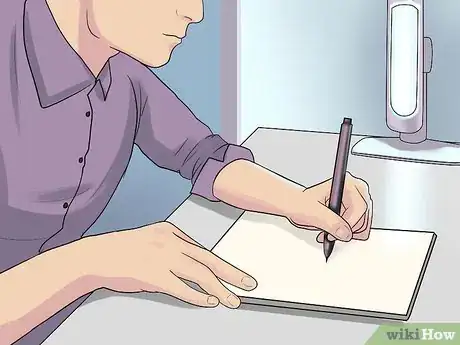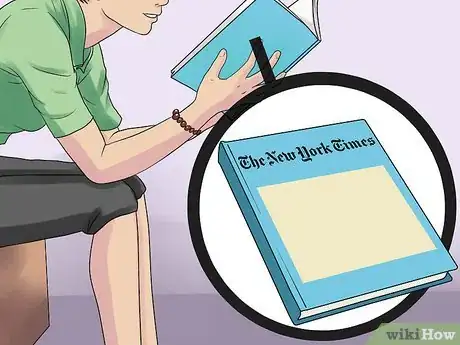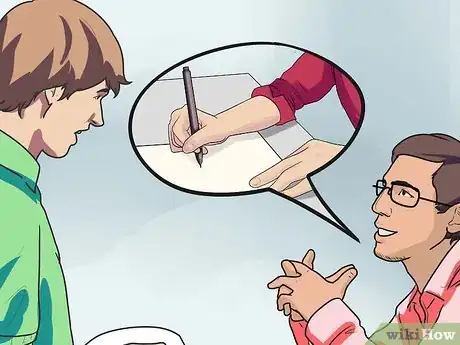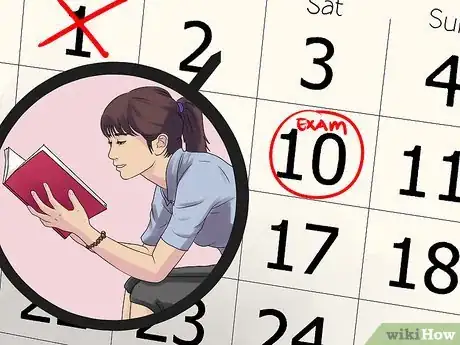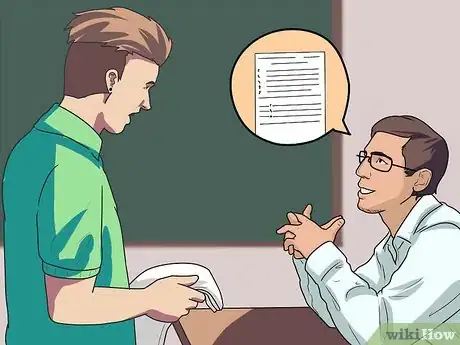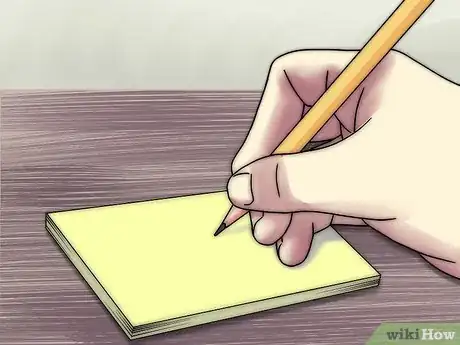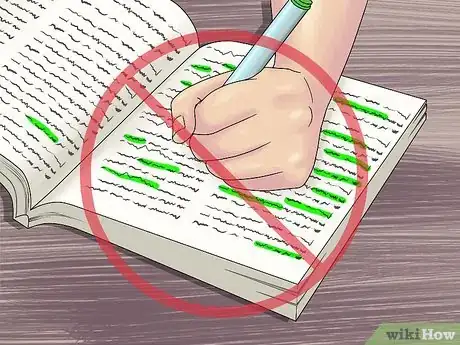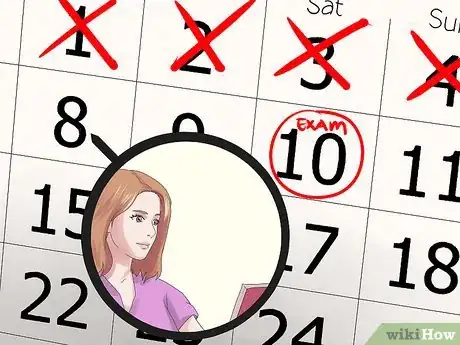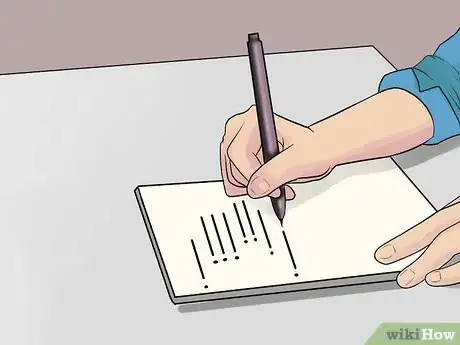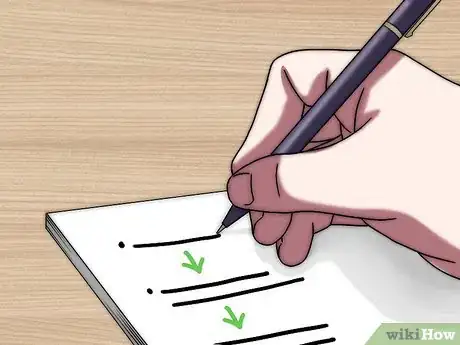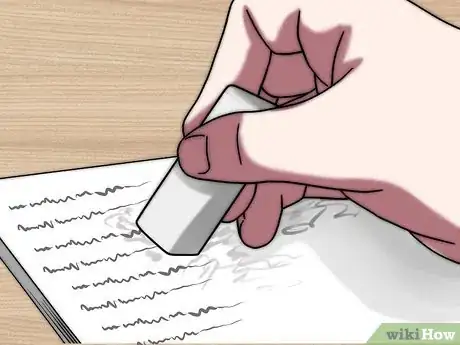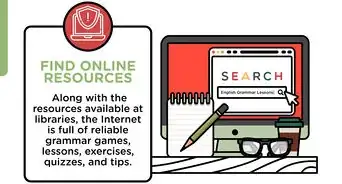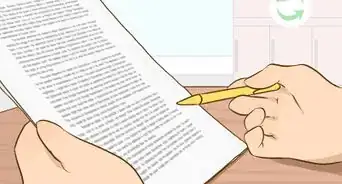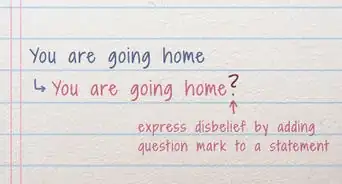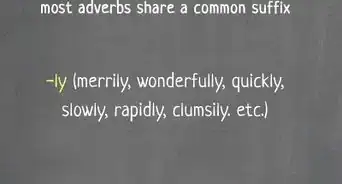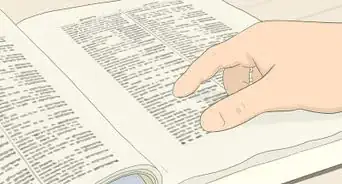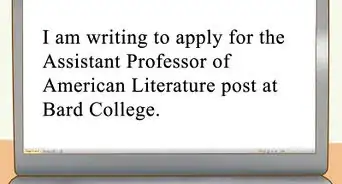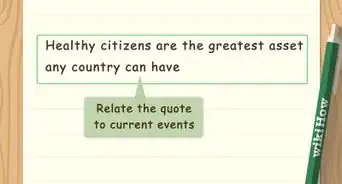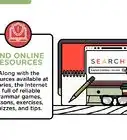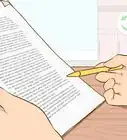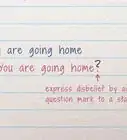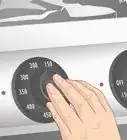This article was co-authored by Megan Morgan, PhD. Megan Morgan is a Graduate Program Academic Advisor in the School of Public & International Affairs at the University of Georgia. She earned her PhD in English from the University of Georgia in 2015.
There are 12 references cited in this article, which can be found at the bottom of the page.
This article has been viewed 32,952 times.
Most students will end up taking at least one class in English at some point. “English” is usually broken into two main categories: language and composition, and literature. (The AP English exams also reflect this division.) Whether it's a literature class or Freshman Composition 101, English can be a complicated topic that frightens students off. Fortunately, with a little work, you can tame the beast that is English class.
Steps
Being Prepared
-
1Take notes. Taking good notes is very important to doing well in English classes, particularly ones that have exams that test your knowledge. Have a dedicated notebook for your English class and bring it to every class meeting.
- You may be tempted to take notes on your laptop, but resist the urge. In addition to the overwhelming temptation to surf Facebook, working on your computer actually doesn't stimulate your brain to remember stuff as much as writing things out by hand does. Good old-fashioned pen and paper is the best way to take notes.[1]
- Don't try to copy down everything your teacher says. Listen to lectures and discussions and write down the most important things, such as definitions, vocabulary words, key terms, themes, etc.
- Write down things that your teacher writes on the board or puts on slides.
-
2Bring your textbooks with you. If you've been assigned a textbook or a book like a novel for your class, bring it with you to every class meeting. Often, teachers will point out specific passages or parts that are particularly important. Use a highlighter or pencil to mark these, so you can remember them when you're studying.
- Make sure to get the edition of the book requested by your teacher. It may not seem important, but having the right edition of a book can be the difference between doing well and not doing great. It's easier to follow along in class if your page numbers are the same as everyone else's, and sometimes certain editions of books have helpful extra materials like glossaries or contextual information. Check the ISBN to make sure you get the right edition.
Advertisement -
3Attend every class. It can be oh-so-tempting to skip class, especially if your freshman comp class is at 8 AM. However, English classes tend to rely very heavily on discussion. Even if you read the assigned materials, you will probably miss out on important information if you cut class. Go to every class meeting. Your grades will thank you.
- If you can't make class, ask ahead of time for a friend or classmate to take notes for you.
- If you really have to miss class, ask your teacher for a breakdown of what they covered in class. It's important to phrase this respectfully! Don't just send an email asking “Did I miss anything important?” That implies that class usually isn't important. Instead, speak with your teacher in person or write an email asking “Could you please share what we covered in class on Monday? I had a broken ankle and would love to know what I missed.”
Doing the Work
-
1Do all the reading. Sure, spending your weekend plowing through King Lear might not be your fantasy weekend, but it's important to do the reading assigned. In many English classes, you may be asked to analyze a passage or write an essay exam discussing important themes, which you won't be able to do if you haven't read the text.
- Summaries like Cliff Notes and Shmoop can be helpful if you've already read a text and are still clueless about what's going on. However, you should never rely on them as your only source of information about a text. They aren't the definitive word on the subject, and you may miss out on the things your teacher wants to emphasize if you only crib from summaries.
- Re-reading texts can also help. If there's a passage or poem that you don't get the first time, don't just stop there. Re-read it more slowly. Look up words you don't know. Check to see if there are any study aids online. This review will pay off.[2]
-
2Complete all assignments. Believe it or not, most English teachers don't assign homework and other assignments just to torment you. These assignments help boost your knowledge and show your weak spots so you can prepare for exams and large essays. Completing them will help you stay on top of everything you're supposed to be learning.
- Often, these little assignments can be the difference between a good grade and a failing grade. Missing one homework assignment may not seem like a big deal, but they add up quickly, especially if your teacher gives them a lot of weight in the syllabus.
-
3Enhance your vocabulary. Reading classic novels, poetry, and respectable journalism like The New York Times or The Wall Street Journal is the best way to boost your vocabulary. If you come across a word you don't understand, look it up right there if you can. (You can access free online dictionaries with your phone.) If you can't look it up immediately, copy down words you don't know to look up later. Read good books whenever you have the time, so you won't fumble during vocabulary tests.
- There are also many mobile apps that will test your vocabulary. Turning learning into a game can help you retain knowledge and enjoy yourself while studying.
- Crossword puzzles can also expand your vocabulary, as they often use unusual words and synonyms for common words.[3]
- Create mnemonic aids. If you're having trouble getting a definition to “stick,” try making it into a mnemonic. For example, you might not remember that gregarious means “sociable, enjoying company,” but you might remember that “Greg Arious is a party animal!”
- If your teacher gives you vocabulary lists or worksheets, make sure you study them!
-
4Review your notes frequently. It's a mistake to wait until the night before a big exam to look at your notes. Take a few minutes a few times a week to flip back through your notes and review key ideas. By “chunking” this information in small amounts over a longer period of time, you'll remember a lot more of it.
- The more often you review information, the more likely you are to commit it to your long-term memory.[4]
- You'll also be able to make connections between earlier material and new material if you familiarize yourself with your notes a few times a week. These kinds of connections will serve you very well on exams, especially essay exams.
-
5Avoid plagiarism. Plagiarism is representing any work that you did not personally do as your own. This can include passing off someone else's ideas as your own, copying an essay from a webpage, or turning in work that you didn't complete yourself. It can also include failing to accurately cite sources that you use in your own work.[5]
- While it may seem like the easy way out to copy a few paragraphs from a website, it's a bad idea for several reasons. The most important reason is that you won't be learning anything if you plagiarize. The other important reason is that you will get caught, and plagiarism can have dire consequences, including failing the assignment, failing the class, or even being expelled.
- If you're concerned about your use of sources and other writers’ ideas, bring your essay to your teacher ahead of time. Teachers are usually very happy to help you make sure you've cited all your sources correctly and carefully -- if you see them ahead of time. Once you've turned your work in, all bets are off.
- Remember: if you can find it online, your teacher can too. Most teachers are very familiar with how your writing sounds and will be able to pick up if it suddenly changes. Teachers also know the most commonly plagiarized sources, like Wikipedia, and many also use plagiarism detection software. To paraphrase Nike: Just don't do it.
Getting Help
-
1Check for extra credit opportunities. So English isn't your best subject, and your grade isn't what you wanted it to be. Many English teachers understand that English scares a lot of students, and they offer extra credit in class if you complete related tasks, such as seeing a play or watching a movie and writing a short response.
- Don't assume that extra credit is a given. Teachers aren't required to offer extra credit, so don't be upset if yours doesn't. If they do, consider yourself lucky.
- Don't wait until the very end of the semester or term! Get started on those extra credit tasks early. By the end of the semester, you may find yourself too slammed with work to do them.
-
2Ask questions. Some students will plow through class all semester without ever asking a single question. Don't be one of them! If there's something you don't understand, or something that you feel could be clearer, speak up. Chances are, if you're confused, your classmates probably are too -- and they'll be glad you asked the question.
- You can also ask your teacher if they can meet with you one-on-one if you have more detailed or involved questions. Many teachers are happy to meet with you during free periods or office hours.
-
3Visit a tutor or writing center. If you're having trouble, a tutor can help. You don't even need a formal tutor; you could consider asking a classmate who seems to have it all together to help you study or review important concepts. It can be hard to ask for help, but it'll make all the difference to your grades.
- Many high schools, colleges, and universities have writing centers. At these centers, you'll find tutors who can help you with most types of writing, including English essays. They're usually free and they're a great resource, so use it if you've got it.
Studying for Exams
-
1Start early. You never know when something will happen to get in the way of studying (funeral, run-away dog, etc.). Give yourself at least a week to prepare for your exam. This will allow you to spread out your studying over several days, which is much more effective than trying to cram it all in on the night before[6]
- Try scheduling specific time to study. If you make an appointment in your calendar with yourself, you may be more likely to take study time seriously. Set aside at least one hour per evening for a week to study for your exam.
-
2Know the exam format. It's a good idea to double-check the exam format. In many cases, your syllabus will say what types of tests and exams you can expect. If you aren't clear, ask your teacher.
- Knowing the format of the exam will help you know what to study. For example, if it's an essay exam, merely memorizing definitions won't be much help. You'll probably want to familiarize yourself with themes and significant concepts, too. If it's a multiple-choice exam, you'll know that you're probably looking at factual information, such as names, plot points, and definitions.
- If you need to study for an English Literature exam, wikiHow has a very helpful guide.
- If you're studying for a more content-based exam, wikiHow's got your back there too: check out this guide.
-
3Review your study guide. Many teachers will provide a study guide that outlines the important concepts, definitions, and other information you need to know. If you've been given one, make sure you review it and learn everything on it.
- If you aren't given a study guide, try making your own! As you review your notes, look for things that repeat or stand out, such as themes, concepts, and definitions. On a separate sheet of paper, write down all of these things. Now, you've got a study guide.
-
4Make flashcards. Flashcards are an excellent way to memorize definitions, vocabulary words, even names of fictional characters. Write the term on one side and the definition on the other. Quiz yourself, or team up with a friend and quiz each other.[7]
- There are also many mobile apps that will let you make flashcards for your phone. This can be very handy: you can flip through your flashcards when you're in line at the store, riding the bus, or hanging out.
-
5Avoid breaking out the highlighters. You may think highlighting and underlining is the best way to study, but you'd be wrong. The way most students use these techniques doesn't lead to information retention. Most of the time, you'll have no idea why you highlighted something.[8]
- Instead of highlighting or underlining, try jotting a few words in the margin of your reading to stimulate your memory for later.
- If your teacher emphasizes a particular passage in class, go ahead and highlight it. But make sure you also note why it's important.
-
6Reread thoughtfully. Mindlessly re-reading and re-reading your texts and notes won't help you much. Instead, try to condense your notes to the most important material. Re-copy out the significant bits onto a new sheet of paper. Ask yourself questions as you go.
- Asking yourself questions like “What’s the significance of this?” or “How does this fit with what I already know?” is a great way to figure out what's really important in your notes and what isn't. If something seems isolated and you can't connect it to the other material, it probably isn't important.
-
7Try different types of study techniques. It can be helpful to transform your notes into different mediums. Doing so encourages you to look at the information in new ways, and may also help you remember it better.
- In addition to things like flashcards, consider making diagrams or even flow-charts. For example, if you want to understand the impact of Hamlet's actions, you could make a flow-chart of every person who's affected by his actions and in what way. You'll be able to more easily visualize this information when you need it on test day.
-
8Outline essay question responses. If your exam is an essay exam, consider outlining a few responses to “big picture” ideas. While you probably won't be able to use all of this on the actual exam, chances are good that you'll have a clearer idea of how to proceed with your answer if you've outlined it first.
-
9Form a study group. You are definitely not the only person in your class who's worried about your English exam. Ask your classmates if they want to come over and study with you. You can quiz each other and compare notes.
- Planning ahead is crucial here: almost nobody will be able to form an impromptu study group the night before a test. Start a couple of weeks out.
Writing Good Essays
-
1Get started early. Just like studying for exams, you can't write a good paper if you wait until the night before. You need to give yourself time to write a draft and revise it (sometimes more than once). Waiting until a day or two before it's due to start an essay is a good way to get a bad grade.
- Work on your essay in stages. Do your research and prep work, then outline it, then write a first draft. Give yourself a day or two “off” before you look at the draft to revise it.
-
2Write good thesis statements. Your thesis statement is the road map for your paper. It tells your readers (and your teacher) what your essay will discuss or argue. Without a solid, clear thesis statement, your essay will feel meandering or shallow.[9]
-
3Organize your essay clearly. Good essays have a logical organization that helps support the argument or discussion. Organization starts with having a clear thesis. Then, you can formulate an outline. After you've outlined your essay, filling in your ideas and discussion is relatively easy.
-
4Make it easy on your reader by using transitions and topic sentences. Transitions and topic sentences act as “signposts” for your readers, saying “this is where the paper is going next.” Using them will help make your writing clear, readable, and smooth.[10]
-
5Revise, revise, revise. Handing in what's essentially the first draft of an essay isn't likely to get you the grade you want. Revision is more than just proofreading. It's a reconsideration of major things like structure, organization, and even content. It's also crucial to presenting a polished final product worthy of that coveted “A.”[13]
- Read through your essay from start to finish. Look for places where you repeat yourself, that don't seem clear, or where ideas seem to jump around. You may need to reorganize sentences, shuffle paragraphs, or even -- yup -- delete and rewrite things.[14]
- Check that your argument still relates to your thesis. It's natural, and even good, for your argument to evolve as you write the essay. However, you need to check to make sure that what you're arguing is still in line with what your thesis says you'll argue. If not, tweak the thesis to align with what you actually wrote.
-
6Proofread carefully. Few things make an English teacher's eyes twitch like sloppy proofreading errors. A misplaced comma or misspelled character name may not seem like a big deal to you, but to your teacher, it suggests that you didn't value the class and the material enough to take your time doing a good job. Proofread your work carefully before turning it in.
- Read your work aloud. By the time you're at the proofreading stage, you'll have read the essay so many times that you may be “filling in” information that isn't there or missing errors. Go slowly and read aloud, marking and fixing errors as you find them. You can also use a text-to-speech application to have the text read outloud to you.
- Double-check things like vocabulary words, character and author names, and titles of literary works.
References
- ↑ http://www.theatlantic.com/technology/archive/2014/05/to-remember-a-lecture-better-take-notes-by-hand/361478/
- ↑ http://www.reading.ac.uk/web/files/deal/english_literature_study_tips_from_reading_university.pdf
- ↑ http://www.theguardian.com/lifeandstyle/2014/sep/12/how-improve-enlarge-vocabulary-english-memory
- ↑ http://www.princetontutoring.com/blog/2011/04/how-to-improve-your-long-term-memory/
- ↑ http://wpacouncil.org/positions/WPAplagiarism.pdf
- ↑ http://ideas.time.com/2013/01/09/highlighting-is-a-waste-of-time-the-best-and-worst-learning-techniques/
- ↑ http://ideas.time.com/2013/01/09/highlighting-is-a-waste-of-time-the-best-and-worst-learning-techniques/
- ↑ http://ideas.time.com/2013/01/09/highlighting-is-a-waste-of-time-the-best-and-worst-learning-techniques/
- ↑ http://www.indiana.edu/~wts/pamphlets/thesis_statement.shtml




